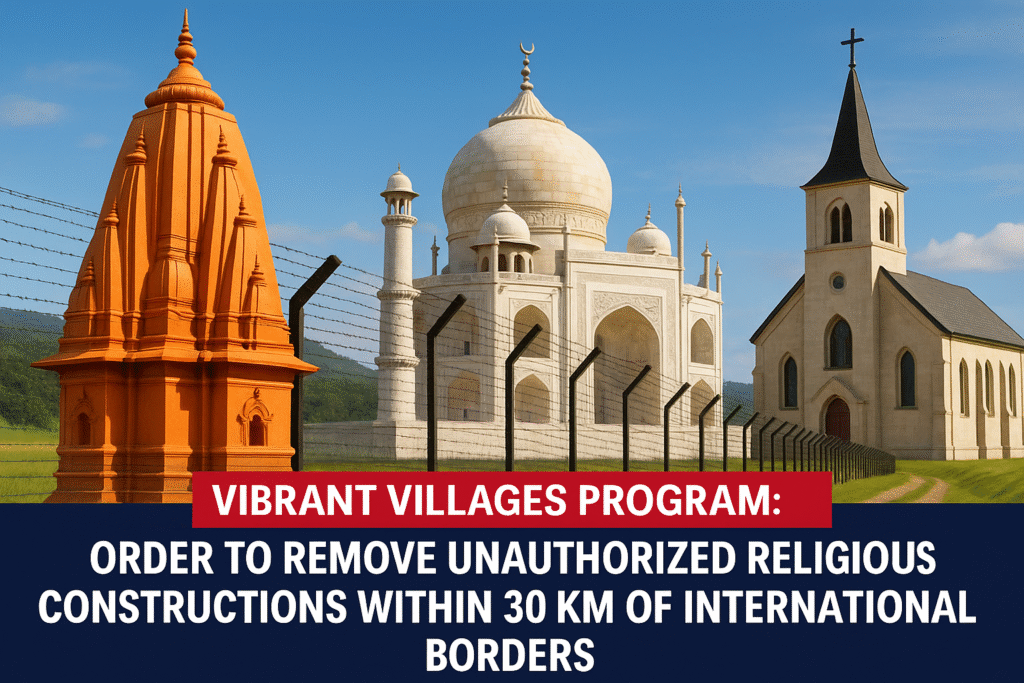The Indian Home Ministry has directed all District Magistrates to remove unauthorized religious structures within a 30 km radius of the international border under the Vibrant Villages Program. Learn what this means for border security, local governance, and community impact.
New Delhi, August 2025:
In a significant policy move aimed at strengthening border management and ensuring national security, the Ministry of Home Affairs (MHA), Government of India, has issued a directive to all District Magistrates (DMs) to identify and remove unauthorized religious constructions within a 30 km radius of India’s international borders. The order is part of the ongoing Vibrant Villages Program, which focuses on the development and security of frontier regions.
Key Details of the Order
- The Home Ministry’s circular, sent to DMs across states with international borders—including Jammu & Kashmir, Punjab, Rajasthan, Gujarat, West Bengal, Assam, Arunachal Pradesh, and others—emphasizes strict enforcement.
- All unauthorized temples, mosques, churches, shrines, and other religious structures built without legal sanction in these sensitive zones must be identified, documented, and removed in a time-bound manner.
- The order is rooted in concerns over national security, cross-border activities, and the potential misuse of such constructions for illegal encroachments or sheltering anti-national elements.
Why This Move Now?
The directive follows recent intelligence reports highlighting the growth of unapproved religious structures near border areas, which, officials say, can sometimes be exploited for non-religious purposes. The Vibrant Villages Program, launched to improve infrastructure and civic amenities in border villages, now also addresses the need for clear, regulated land use to support defense and surveillance operations.
Implications for Local Administration and Communities
- District Magistrates are tasked with conducting surveys, issuing notices, and coordinating with local law enforcement to ensure peaceful and legal removal of such structures.
- Community leaders and religious organizations are being urged to cooperate, with promises of fair hearings and rehabilitation where required.
- The MHA has clarified that only unauthorized and recently constructed structures will be affected; long-standing places of worship with valid documentation are not targeted.
Balancing Security and Social Harmony
While the order is intended to secure border areas and curb illegal encroachment, authorities have stressed the importance of handling the process sensitively to avoid communal tensions. Public awareness campaigns and local dialogues are being initiated to explain the security rationale and legal framework behind the directive.
What’s Next?
Implementation will be monitored at the central and state levels, with progress reports required from each affected district. The initiative is expected to set a precedent for regulated development in India’s border villages, balancing national security with social cohesion.

